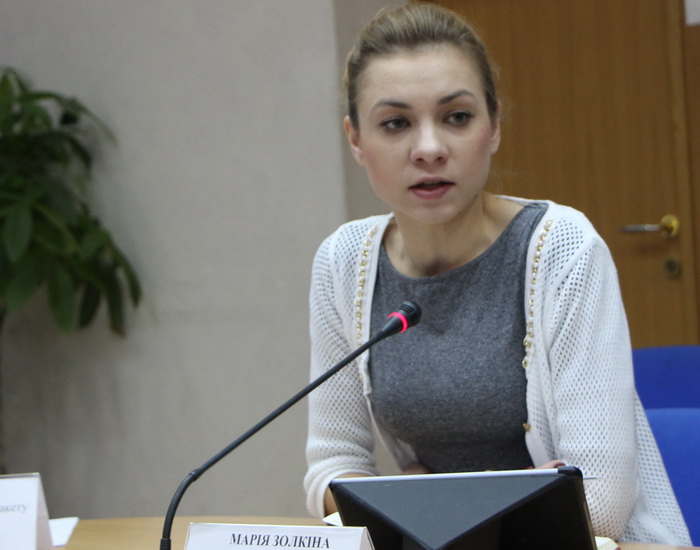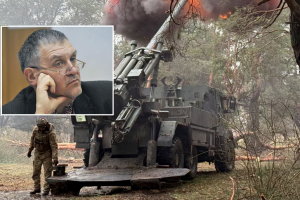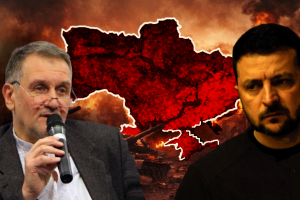New U.S. president: signals for Ukraine
 Mariia Zolkina Рolitical analyst,
Mariia Zolkina Рolitical analyst,
Democratic Initiatives Foundation
The inauguration of Donald Trump as the new President of the United States of America on January 20, 2017, while it did not make totally clear the doctrine and plans of the new Presidential Administration, it did make glaringly clear the policy of the 45th president of the U.S. and what will be his priorities. The key directions of the work of the administration of President Donald Trump, which were made public after the inaugural ceremony, give a better understanding of what is worth expecting from the U.S. with the new president behind the helm. Essentially, if to read between the lines certain signals were sent out to Ukraine for whom bilateral relations with the U.S., all the more given the new team in the White House, are extremely important.
So, the first signal is that a new political era in the history of the U.S. will more likely accentuate and focus on domestic policy and the overall internal situation in the U.S. than on the foreign “presence” of the U.S. as a global superpower. Pure isolationism on the part of the Trump administration is not worth expecting, while the deeply rooted engagement of the U.S. in international affairs that has become traditional for it over the past ten years should also not be expected. Clearly, the directions of U.S. policy as a global actor will either be folded or its approach to participation in existing alliances and processes of international cooperation will change.
This will apply to trans-Atlantic integration, trans-Pacific partnership and cooperation within the framework of the North American Free Trade Agreement (NAFTA). In this context, for Ukraine the main thing is a pre-planned review of relations between the U.S. and the European Union, as well as NATO. The new administration in the U.S. will not be oriented towards the achievement of solidarity and unity between a United Europe and the U.S. on the principle issues for Ukraine such as sanctions pertaining to Russia. All things considered, in the event that the interest of Trump and his team in such unity will be insignificant, this will automatically play into the hands of forces in the EU loyal to Russia that without this are becoming more and more vocal about the need to ease sanctions against Russia and return to business as usual. Notwithstanding the boisterous statements of Trump during his election campaign the review of relations with NATO will not be as tangible and serious, but all members of the Alliance should now take into consideration that it is not worth expecting from the new leader of the White House his allegiance to the idea of mutual security in the Euro-Atlantic space.
The strengthening of NATO as an actor on the foreign policy stage will not be among the priorities of the new U.S. administration. Naturally, the greater focus on domestic policy does not mean that the importance of foreign policy will be completely diminished, though the internal factors will to a great extent determine the importance of many issues in the international plane. The economy, migration policy and social policy – these are the issues that the new president feels are “tangible” and can “touch the hearts” of every American. This is what he promises to build his policy on in the domestic sphere. And although this is genuinely not considered isolationism in international affairs, clearly the U.S. will toe the Trump line only in those spheres and problems in foreign policy that give specific preference to domestic policy or will at the very least not result in significant losses in the most diverse spheres, both financial and economic sectors, as well those that pertain to security and political issues.
This will be the exceptional trait of the new administration that will qualitatively differentiate it from many of the previous democratic and republican administrations: Donald Trump’s America should not be the flagship of world processes by trying to be “present” in all possible problems, from economic issues to the building up of democracy. Instead, Trump’s America must concentrate on what is beneficial for it here and now, meaning the approach of the new administration is most likely orientation towards tactical solutions and tactical alliances, not the development of long-term strategies and schemes.
The second important signal that should be heard by Ukraine is a logical extension of the aforementioned. Namely, Ukraine should not expect the unconditional support of the new presidential administration in the U.S. Making a successful democracy out of Ukraine will not be the a priori interest or task for Trump himself or for his closest followers. In practice, this means that Ukraine will have to fight and prove the expediency of the new “portions” of its support, both in the framework of bilateral relations with the U.S., and in the framework of those international institutions in which the voice of the U.S. is very powerful. In particular, this applies to the International Monetary Fund and NATO.
The new administration will not put pressure on official Kyiv with the aim of forcing it to conduct reforms: this is simply not part of its vision of the role of relations between Ukraine and the U.S. This, in turn, will mean greater complications for Ukraine in receiving financial assistance and less attention to what is happening inside the country. As such, one of the international auditors of reforms in Ukraine is de facto clearly relieving itself of such authority, which may be a certain backfire, particularly in the spheres of the fight against corruption and the reform of the judicial and law enforcements systems. It was exactly these spheres that were under the particularly “scrupulous” monitoring eye of the Obama administration.
Thirdly, the greatest interest for Ukrainian society, if not the most important one, is the possible thawing of relations between the U.S. and Russia. Indeed, Ukrainian society is keeping probably the most watchful eye on the issue of major agreements about Ukraine at the expense of its interests. Be that as it may, not all in this aspect is clear-cut. On the one hand, there is a strong lean towards the achievement of tactical agreements at the very least because the U.S. may pay greater attention to competition with China than with Russia on the global arena. On the other hand, the interest in a similar “big deal” is not as clear as it may seem and is therefore inherently not all too realistic.
There is resistance in the upper echelons of the Republican Party and in a significant part of American society. After all, an agreement with Russia would most definitely mean certain concessions on the part of the U.S. in its current position regarding Moscow. But this totally does not gel with the logic of a superpower that is not aspiring towards new victories in any spheres on the international arena, though it is most likely not prepared to sacrifice its existing power and influence in relations with Russia. Herein, what is important in the cross-section of the Ukraine issue is that none of the major agreements will be realistic if official Kyiv does not agree with them. Moscow and Washington can agree to just about anything, but this will most definitely require the consent of Ukraine to take such steps and accept the new reality. Refusal to agree to making a losing compromise will always remain an open option for official Kyiv if the proposed new rules of the game are unacceptable for it. And these new rules can only be unacceptable and such that affix the loss of territorial integrity and possibly imply the legalization of the status quo in the Donbas region. Naturally, a powerful state with effective institutions would fear such proposals less, but even now Kyiv will always have a choice: to adhere to similar conditions or rely on its internal forces and refuse to participate in cutting a potentially “big deal”.








